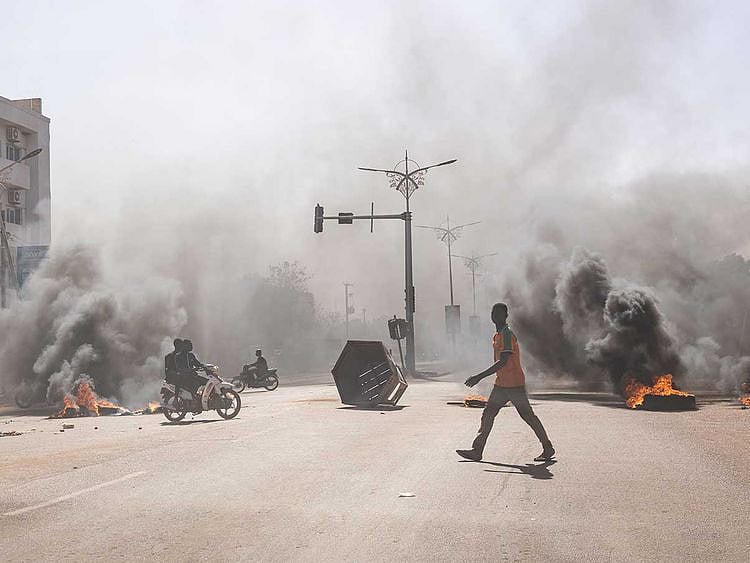Is France losing its former African colonies?
Though many African countries remain neutral, a massive geopolitical shift is underway

A few years ago, the discussion regarding the geopolitical shifts in Africa was not exactly concerned with France. It focused mostly on China’s growing economic role and political partnerships on the African continent. For example, Beijing’s decision to establish its first overseas military base in Djibouti in 2017 signalled China’s major geopolitical move.
China remains committed to its Africa strategy. Beijing has been Africa’s largest trading partner for 12 years, consecutively, with total bilateral trade between China and Africa, in 2021, reaching $254.3 billion, according to recent data released by the General Administration of Customs of China.
The United States, along with its western allies, have been aware of, China’s growing clout in Africa. The establishment of US AFRICOM in 2007 was rightly understood to be a countering measure to China’s influence. Since then, and arguably before, talks of a new ‘Scramble for Africa’ abounded, with new players, including China, Russia, even Turkiye, entering the fray.
The Russia-Ukraine war, however, has altered geopolitical dynamics in Africa, as it highlighted the Russian-French rivalry on the continent, as opposed to the Chinese-American competition there.
Though Russia has been present in African politics for years, the war — thus the need for stable allies at the United Nations and elsewhere — accelerated Moscow’s efforts. In July, Russia’s Foreign Minister Sergey Lavrov visited Egypt, Ethiopia, Uganda, and the Republic of Congo, fortifying Russia’s diplomatic relations with African leaders.
Moscow’s efforts have been paying dividends. Many African nations remained either neutral or voted against measures targeting Russia at the UN.
South Africa’s position, in particular, was problematic from Washington’s perspective, not only because of the size of the country’s economy, but also because of Pretoria’s political influence and moral authority throughout Africa. Moreover, South Africa is the only African member of the G20.
In his visit to the US in September, South Africa’s President Cyril Ramaphosa defended his country’s neutrality and raised objections to a draft US bill — the Countering Malign Russian Activities in Africa Act — that is set to monitor and punish African governments who do not conform to the American line in the Russia-Ukraine conflict.
The West fails to understand, however, that Africa’s slow, but determined shift toward Moscow is not accidental.
Struggle against western colonialism and neocolonialism
The history of the continent’s past and current struggle against western colonialism and neocolonialism is well-known. While the West continues to define its relationship with Africa based on exploitation, Russia is constantly reminding African countries of the Soviet legacy on the continent.
Botably France has military bases in many parts of Africa and remains an active participant in various military conflicts. Equally important is Paris’s stronghold over the economies of 14 African countries, which are forced to use French currency, the CFA franc and, according to Frederic Ange Toure, writing in Le Journal de l’Afrique, to “centralise 50% of their reserves in the French public treasury”.
Though many African countries remain neutral in the case of the Russia-Ukraine war, a massive geopolitical shift is underway, especially in militarily fragile economies that are eager to seek alternatives to French and other western powers. For a country like Mali, shifting allegiances was not exactly a great gamble.
The same logic applies to other African countries that are fighting extreme poverty, political instability and the threat of militancy, all of which are intrinsically linked.
Though China remains a powerful newcomer to Africa — a reality that continues to frustrate US policymakers — the more urgent battle, for now, is between Russia and France.
In a speech last July, French President Emmanuel Macron declared that he wanted a “rethink of all our (military) postures on the African continent.”
France’s military and foreign policy shift in Africa, however, was not compelled by strategy, but by changing realities.
Ramzy Baroud is a journalist, author and editor. He is the author of six books.
Sign up for the Daily Briefing
Get the latest news and updates straight to your inbox
Network Links
GN StoreDownload our app
© Al Nisr Publishing LLC 2025. All rights reserved.